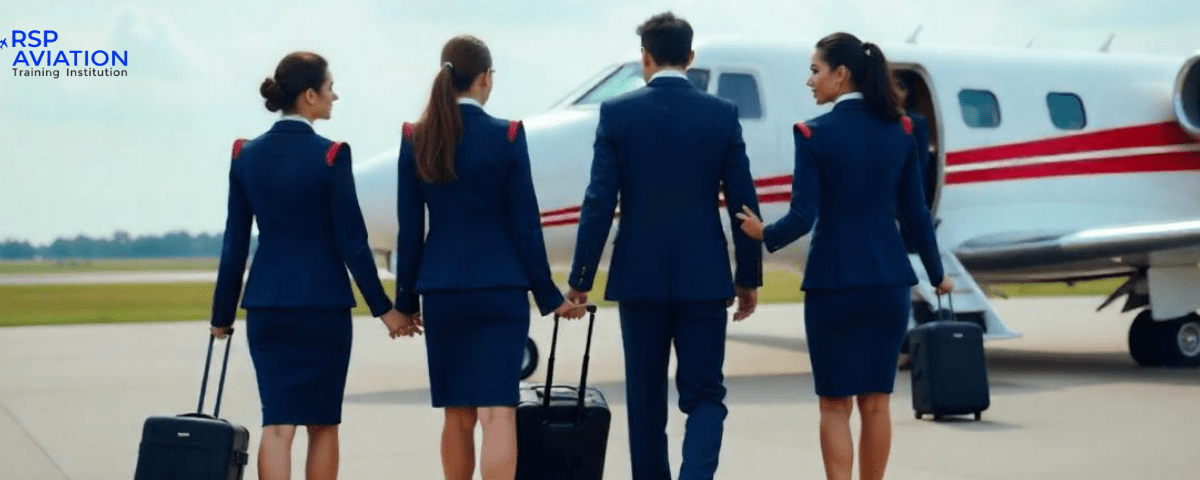Preparing for Takeoff: Tips for Aspiring Aviation Students
The aviation industry is one of the most exciting and rewarding fields to pursue a career in. From becoming a commercial pilot to working in air traffic control, airport management, or aviation engineering, there are numerous opportunities for aspiring professionals. However, breaking into this competitive field requires dedication, skill development, and strategic planning. If you’re an aspiring aviation student, here are some essential tips to help you navigate your journey successfully. 1. Research Different Aviation Career Paths Aviation offers a variety of career opportunities, including: Pilots – Responsible for flying commercial, cargo, or private aircraft. Aircraft Maintenance Engineers – Ensure aircraft are in optimal condition for safe operations. Air Traffic Controllers – Manage aircraft movements on the ground and in the air. Airport Managers – Oversee daily airport operations and logistics. Cabin Crew – Ensure passenger safety and comfort during flights. Aviation Safety Inspectors – Monitor compliance with aviation regulations. Air Cargo and Logistics Specialists – Handle the transportation of goods via air freight. Understanding different roles in aviation will help you determine the best fit for your skills and interests. 2. Choose the Right Aviation School or Training Program Selecting a reputable aviation institute is crucial for gaining quality education and hands-on experience. Look for aviation training centers that are: Accredited and recognized by aviation regulatory bodies like the Directorate General of Civil Aviation (DGCA) or Federal Aviation Administration (FAA). Offering specialized programs in your area of interest, such as flight training, airport management, or aviation engineering. Equipped with modern facilities, including flight simulators, aircraft maintenance labs, and industry partnerships. Providing internship and placement opportunities to help you transition into the workforce. 3. Gain Practical Experience Through Internships Internships and hands-on training are invaluable in aviation. Whether you aspire to be a pilot, aircraft technician, or airport manager, working in a real-world aviation environment helps build practical skills and industry connections. Seek opportunities at airports, airlines, maintenance repair organizations, and cargo companies. 4. Develop Strong Communication and Teamwork Skills Aviation is a highly collaborative industry where teamwork is essential. Pilots coordinate with air traffic controllers, cabin crew work closely with passengers, and airport staff must communicate effectively to ensure smooth operations. Enhancing your communication, problem-solving, and leadership skills will make you stand out in the field. 5. Stay Physically and Mentally Fit Many aviation careers, especially for pilots and cabin crew, require good physical health and mental alertness. Some tips to maintain fitness include: Regular exercise to improve stamina and overall well-being. Adequate sleep to maintain alertness, which is critical for flight operations. Healthy eating habits to sustain energy levels. Stress management techniques such as meditation or breathing exercises to handle high-pressure situations. 6. Stay Updated on Industry Trends and Regulations The aviation industry evolves rapidly with technological advancements, regulatory changes, and safety protocols. Keep yourself informed by: Reading aviation news and industry reports. Following regulatory authorities like DGCA, FAA, and IATA. Attending aviation expos, webinars, and training programs. 7. Improve Your Technical Knowledge Aspiring aviation professionals must have a strong understanding of aviation technology, safety protocols, and air navigation systems. If you’re an aspiring pilot, mastering subjects like meteorology, aerodynamics, and aircraft systems is essential. If you’re pursuing airport management, understanding air traffic control, ground handling, and airline operations will be beneficial. 8. Obtain Necessary Certifications and Licenses Depending on your chosen career path, you may need specific certifications. Some common certifications include: Private Pilot License (PPL) and Commercial Pilot License (CPL) for pilots. Aircraft Maintenance Engineer (AME) Certification for maintenance professionals. Air Traffic Control (ATC) Certification for air traffic controllers. Cabin Crew Training Certification for flight attendants. Check with your country’s aviation regulatory authority for certification requirements. 9. Network with Industry Professionals Building relationships with aviation professionals can help you gain insights into the industry and open doors to job opportunities. Ways to network include: Joining aviation forums, LinkedIn groups, and professional associations. Attending aviation career fairs and networking events. Seeking mentorship from experienced professionals in the field. 10. Be Patient and Persistent Aviation careers require time, dedication, and perseverance. Whether you’re training to become a pilot, gaining hours of experience, or working towards an advanced certification, patience is key. Stay committed to your goals, keep improving your skills, and remain adaptable to the ever-changing aviation landscape. #AviationCareers #AviationTraining #PilotTraining #CabinCrewLife #AirportManagement #AirTrafficControl #AviationIndustry #FuturePilots #AirlineJobs #FlightTraining #AviationStudents #FlyHigh #AviationDreams #PilotLife #AircraftMaintenance #AirlineManagement #AviationSafety #AviationNetworking #AviationTechnology #AspiringAviators



